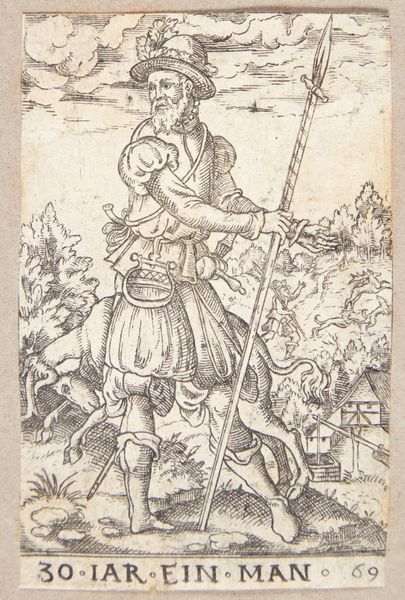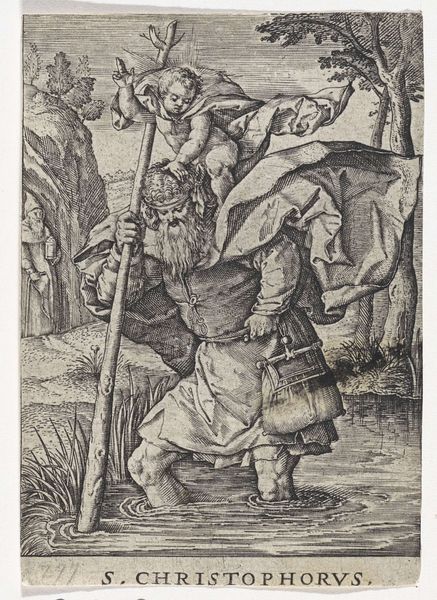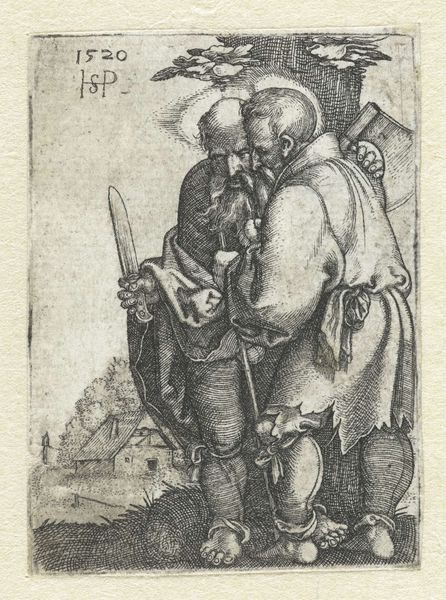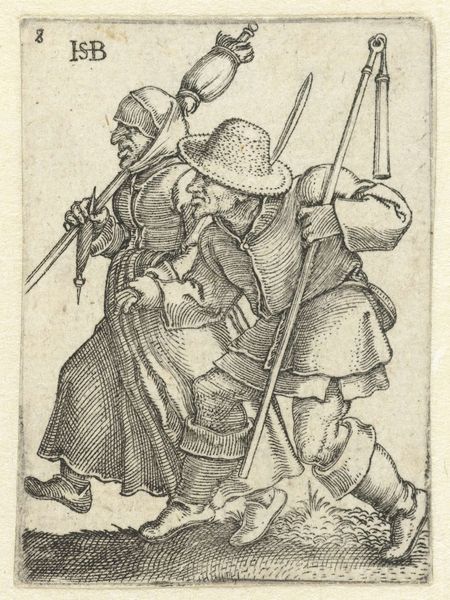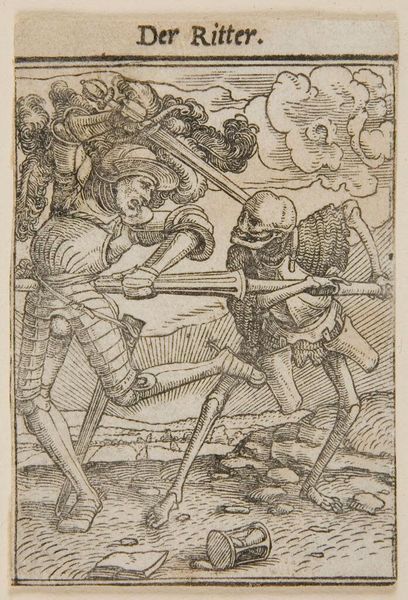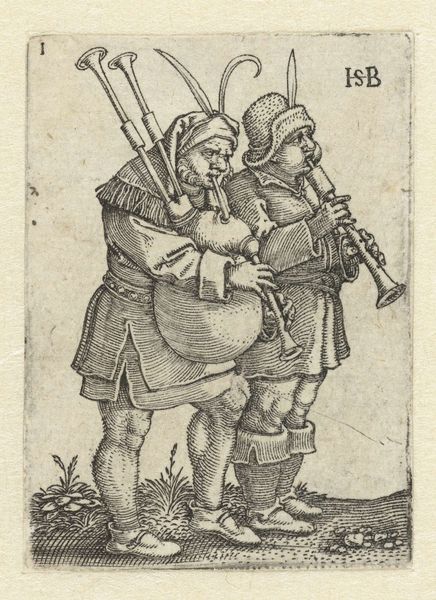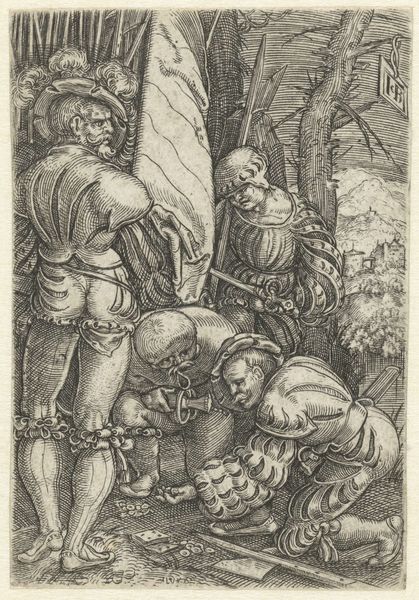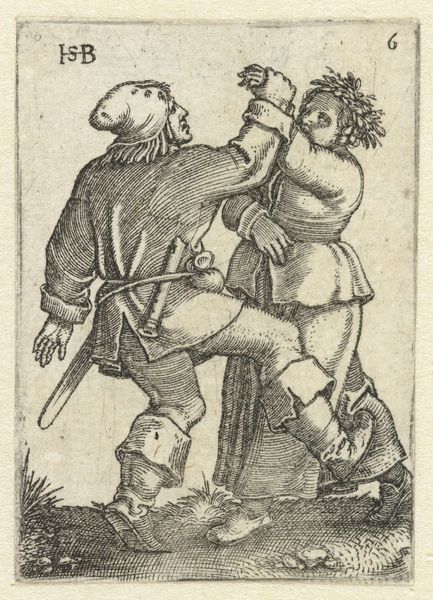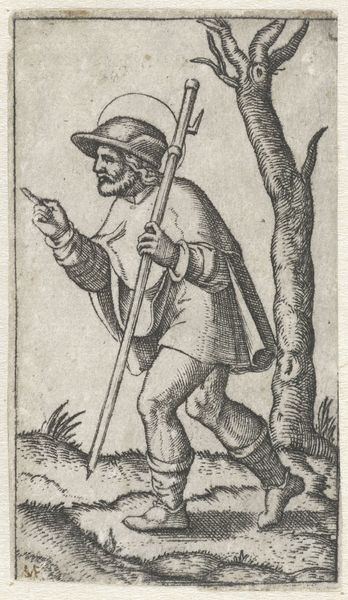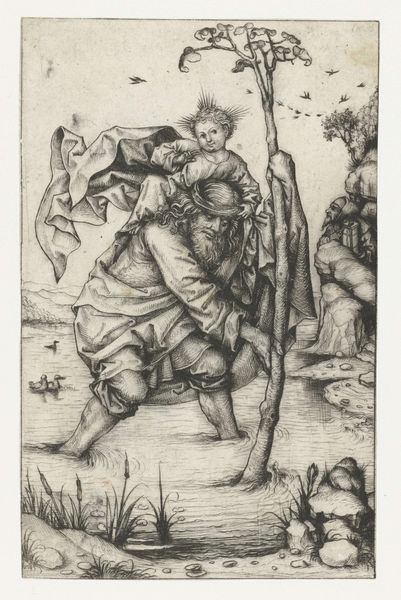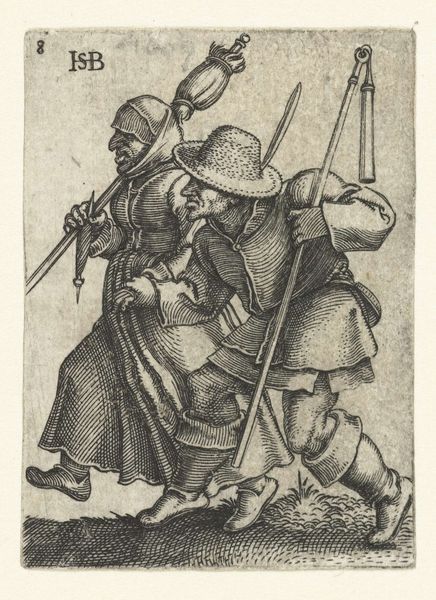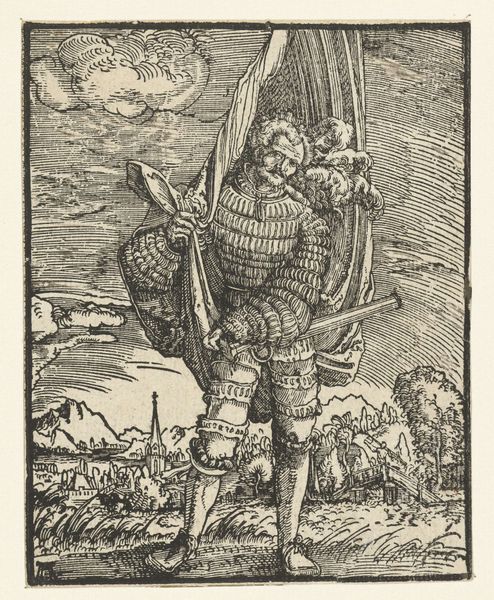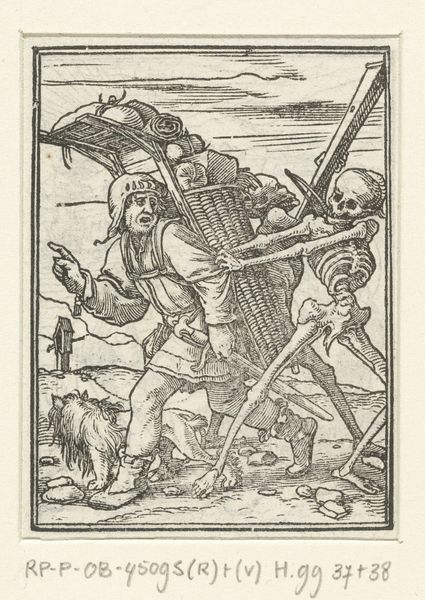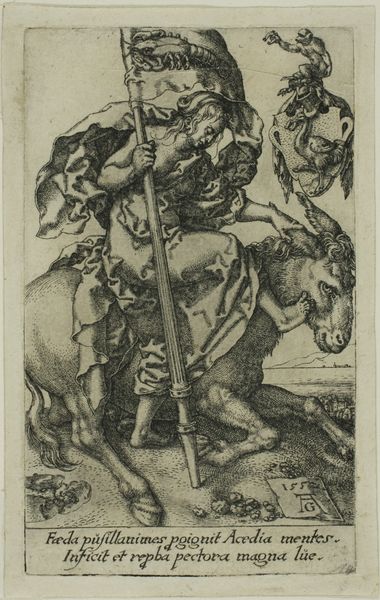
print, engraving
# print
#
landscape
#
figuration
#
genre-painting
#
northern-renaissance
#
engraving
#
realism
Dimensions: height 50 mm, width 32 mm
Copyright: Rijks Museum: Open Domain
Sebald Beham created this engraving, *Boer op weg naar de markt*, in 1520. Beham was a German artist working during the Reformation, a time of huge social and religious upheaval. This piece depicts a farmer trudging to market. The farmer is burdened with the tools of his trade, a basket of goods, and a captured animal slung over his shoulder. Beham made many images of peasants. These works offer insight into the lives of the working class. The detailed rendering of the farmer's clothing, tools, and produce can be viewed as social commentary. But how should we interpret these representations? Do they celebrate rural life, or do they reinforce class distinctions? Does Beham treat this figure with dignity, or is it an exercise in stereotype? The emotional impact lies in recognizing the farmer’s labor. What does it mean to see one's work depicted, and how does that representation influence one's sense of self? Through such intimate portrayals, Beham invites us to reflect on the economic and social fabric of his time. This invites us to consider the labor, class, and identity of the farming class.
Comments
No comments
Be the first to comment and join the conversation on the ultimate creative platform.
